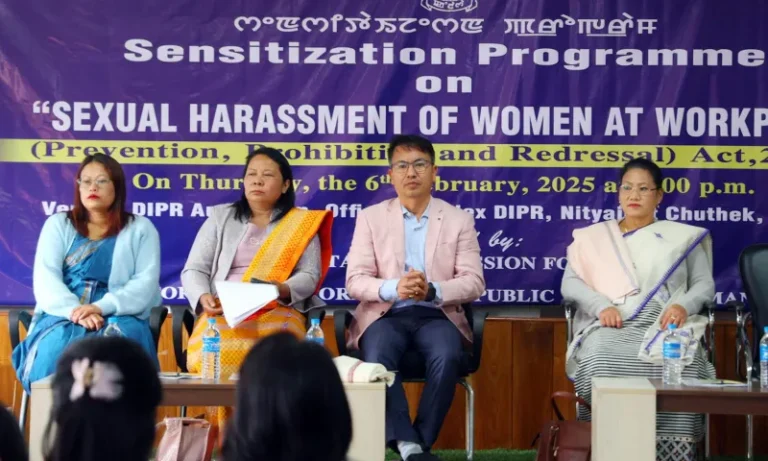Congress Criticizes PM Modi’s Kuwait Visit Amid Manipur Crisis
On December 21, 2024, the Congress Party criticized Prime Minister Narendra Modi for embarking on a two-day visit to Kuwait, focusing on defense and trade relations, while Manipur continues to grapple with ethnic violence. Congress General Secretary Jairam Ramesh highlighted the Prime Minister’s absence from the crisis-hit state, suggesting that his presence could aid in restoring peace and stability. The ethnic violence in Manipur, which began on May 3, 2023, has resulted in over 220 deaths, affecting primarily the Meitei and Kuki communities, as well as security personnel.
Congress Criticizes PM Modi’s Kuwait Visit Amid Manipur Crisis
Is the Prime Minister’s foreign visit overshadowing domestic crises?
Introduction
In the intricate tapestry of Indian politics, the balance between international diplomacy and domestic responsibilities is delicate. Prime Minister Narendra Modi’s recent visit to Kuwait has ignited a debate, with the Congress Party accusing him of neglecting pressing issues in Manipur. This article delves into the nuances of this controversy, examining the implications of the Prime Minister’s travel decisions amid internal strife.
Background of the Manipur Crisis
Manipur, a northeastern state of India, has been embroiled in ethnic violence since May 3, 2023. The conflict primarily involves the Meitei and Kuki communities, leading to over 220 fatalities, including security personnel. The unrest has disrupted daily life, with citizens yearning for peace and stability.
Prime Minister’s Kuwait Visit
On December 21, 2024, Prime Minister Narendra Modi embarked on a two-day visit to Kuwait, aiming to strengthen bilateral relations in defense and trade. This visit is part of India’s broader strategy to enhance ties with Gulf countries, crucial for energy security and economic cooperation.
Congress Party’s Criticism
The Congress Party has been vocal in its criticism of the Prime Minister’s foreign visit during a domestic crisis. General Secretary Jairam Ramesh expressed his disapproval, stating, “Such is their fate, As Mr. Modi refuses to find a date, The people of Manipur continue to wait, While the Frequent Flyer PM is off to Kuwait.”
Balancing International and Domestic Responsibilities
The Prime Minister’s role necessitates a careful balance between international diplomacy and addressing domestic issues. While strengthening international relations is vital for the nation’s growth, attending to internal conflicts is equally crucial. The criticism from the Congress Party underscores the perceived neglect of domestic responsibilities in favor of international engagements.
Public Perception and Media Coverage
Media outlets and public opinion are divided on this issue. Some argue that international visits are pre-scheduled and essential for national interests, while others believe that the Prime Minister should prioritize resolving internal conflicts before engaging in foreign diplomacy. The portrayal of this situation in the media influences public perception, highlighting the importance of effective communication from the government.
Historical Context of Leadership During Crises
Historically, leaders are often judged by their responses during times of crisis. The decision to travel abroad amid domestic turmoil can be perceived as a lack of empathy or commitment to resolving internal issues. This perception can have long-term implications on a leader’s legacy and public trust.
Government’s Defense
Supporters of the Prime Minister argue that international relations are crucial for India’s strategic interests and that such visits are planned well in advance. They contend that the government is concurrently addressing the Manipur crisis through appropriate channels and that the Prime Minister’s presence in the state may not necessarily expedite the resolution process.
Impact on Manipur’s Citizens
For the residents of Manipur, the ongoing violence has led to a sense of abandonment and frustration. The perception that national leadership is overlooking their plight exacerbates their grievances. A visit from the Prime Minister could symbolize solidarity and a commitment to resolving the conflict, potentially fostering hope among the affected communities.
Political Implications
The Congress Party’s criticism reflects broader political dynamics, where opposition parties scrutinize the ruling government’s actions, especially during crises. Such controversies can influence public opinion and voter behavior, impacting future elections and the political landscape.
Conclusion
The debate over Prime Minister Modi’s visit to Kuwait amid the Manipur crisis highlights the complexities of governance, where leaders must juggle international obligations with domestic responsibilities. While international diplomacy is essential, addressing internal conflicts with empathy and promptness is crucial for maintaining public trust and ensuring national unity.
FAQs
- What is the main issue in Manipur?
- Manipur is experiencing ethnic violence between the Meitei and Kuki communities, resulting in over 220 deaths since May 2023.
- Why did Prime Minister Modi visit Kuwait?
- The Prime Minister’s visit aimed to strengthen bilateral relations in defense and trade between India and Kuwait.
- What is the Congress Party’s criticism regarding the visit?
- The Congress Party criticizes the Prime Minister for traveling abroad while Manipur faces ongoing violence, suggesting a neglect of domestic issues.
- How has the government responded to the Manipur crisis?
- The government states that it is addressing the situation through appropriate channels, though critics argue that more direct involvement is needed.
- What are the potential political implications of this controversy?
- The situation may influence public opinion and voter behavior, affecting future elections and the political landscape in India.

